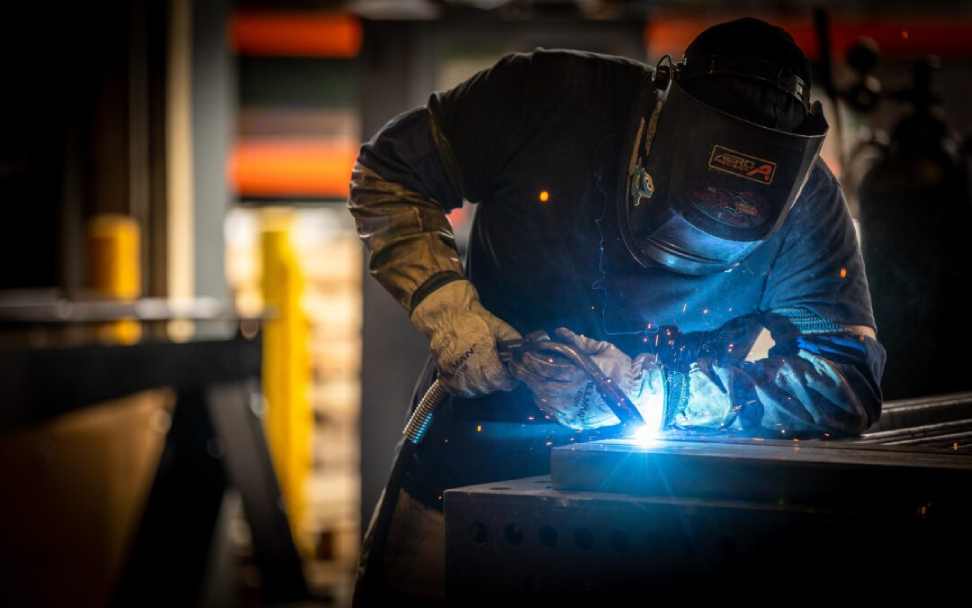The world around us is built on a foundation of metal. From the towering skyscrapers to the intricate workings of a smartphone, metal fabrication plays a crucial role in shaping our lives. But is this a domain worth venturing into for your career?
A Rewarding Profession Built on Skill
Metal fabrication offers a compelling path for individuals who enjoy working with their hands and possess a knack for creating things. It’s a field that goes beyond simply welding or cutting metal. It’s about transforming raw materials into functional and often remarkable objects.
Prospering in a Stable Industry
- Demand: The need for skilled metal fabricators remains steady. An aging workforce in conjunction with continuous industrial growth creates a gap that needs to be filled.
- Specialization: The field offers a diverse range of specializations like welding, CNC machining, sheet metal work, and fitting. This allows individuals to find a niche that aligns with their interests and strengths.
- Tangible Results: Witnessing the physical outcome of your work brings a unique sense of accomplishment. You can point to a building, a bridge, or even a household appliance and say, “I helped create that.”
Beyond the Shop Floor: A Spectrum of Opportunities
Metal fabrication isn’t just about manual labor. There’s a growing need for individuals with:
- Technical Expertise: Understanding of blueprint reading, welding processes, and knowledge of various metals paves the way for supervisory roles and quality control positions.
- Design Skills: Individuals with an inclination towards design can delve into areas like 3D modeling and Computer-Aided Design (CAD), creating the digital blueprints that guide fabrication processes.
- Entrepreneurial Spirit: The industry offers opportunities to establish one’s own fabrication workshop, catering to specific niches or local needs.
Building a Rewarding Career Path
While prior experience is beneficial, several avenues exist to enter the metal fabrication sector:
- Apprenticeship Programs: These programs provide hands-on training under the guidance of experienced professionals. They often combine classroom learning with practical experience, equipping individuals with the necessary skills for various fabrication techniques.
- Vocational Schools & Community Colleges: These institutions offer certificate programs in welding, machining, and other metalworking disciplines.
- On-the-Job Training: Many fabrication shops are willing to train individuals with the right aptitude and work ethic.
Earning Potential and Job Outlook
The Bureau of Labor Statistics (BLS) projects a 4% growth in employment opportunities for welding, soldering, and brazing occupations over the next decade https://www.bls.gov/oes/current/oes514199.htm.
Salary figures can vary depending on experience, location, and area of specialization. According to the BLS, median annual wages for welders and cutters were $41,740 in May 2022 https://www.bls.gov/oes/current/oes514199.htm.
Finding the Right Fit
Here are some crucial factors to consider before embarking on a career in metal fabrication:
- Interests: Do you enjoy working with your hands and creating tangible objects?
- Physical Requirements: Metal fabrication often involves lifting heavy objects, working in awkward positions, and exposure to fumes and loud noises.
- Safety: Metalworking environments necessitate adherence to safety protocols to prevent injuries.
A Fulfilling Career Built on Dedication
Metal fabrication offers a stable and rewarding career path for individuals who are passionate about working with their hands and possess the drive to acquire new skills. The industry presents a multitude of opportunities for growth, both personally and professionally.
Additional Considerations
- Continuing Education: The industry is constantly evolving, and keeping oneself updated on the latest technologies and advancements is crucial for staying competitive.
- Professional Certifications: Earning certifications in specific welding processes or niche areas can enhance your skillset and open doors to better career prospects.
Conclusion
Metal fabrication is a dynamic field that caters to individuals seeking a hands-on, fulfilling career. It offers a unique blend of physical skill, technical knowledge, and the satisfaction of creating functional objects that contribute to the world around us. If you possess the right aptitude and are willing to invest the time and effort in honing your skills, metal fabrication can be a rewarding journey that shapes a successful and fulfilling career.
Feature image source:- https://tinyurl.com/3csubznk

